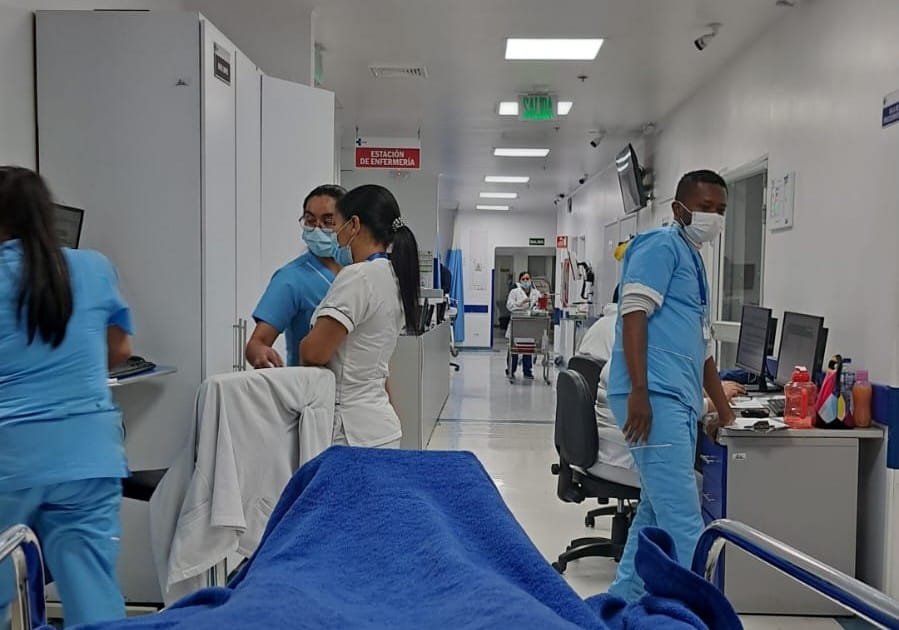Just halfway into the week, it’s already been a long time in Colombian politics. The government’s proposed health reform to change the controversial EPS healthcare system this week was essentially sunk. Alongside that were spats with the media, the opposition and some political changes.

Health reform has been one of the key pillars of Petro’s gobierno de cambio, so this is a big setback for him. It’s currently under review by the Seventh Commission, who now have a majority of their number (8/14) in favour of shelving the proposal. That means it is in effect dead in the water. Norma Hurtado of the U party was the final Senator to decide to support the shelving.
Petro is refusing to withdraw the health reform motion though, claiming it’s necessary for the country. The president of the Commission, Martha Peralta, will decide when to do so. Given that they’ll need two Senators on the Commission to change their minds, it’s hard to see how that will happen without significant modifications or politicking behind the scenes.
Members of the press have also come under fire from the head of state. Petro took the opportunity of laying the first stone of a new Arts building at the National University to criticise RCN and Caracol in particular for “dumbing down and putting society to sleep.” There is now a state-run paper to trumpet government achievements though, to redress the balance and perceived bias.
The president has also taken to social media to criticise the opposition, who he described as “egoistic cannibals.” This is down to their proposal to stop the controversial Jóvenes En Paz project, which pays youths at risk of joining gangs.
Last week saw further street protests against the Petro government. The marches were typically divisive, with arguments raging across social media over the numbers of demonstrators, particularly in the Plaza de Bolívar. It’s clear that the numbers are far below those that protested former president Iván Duque three years ago.
For months now, there’s been an ongoing process to elect a new fiscal general for the nation. The deadlock was finally broken this week with the election of Luz Adriana Camargo. But, the move came with another twist as another candidate, Amelia Pérez, withdrew minutes before the vote. She had attracted criticism for her husband’s support of Petro.
Camargo replaces interim Fiscal General Martha Mancera, seen as a continuation of her ex-boss and strong critic of the president, Francisco Barbosa. His term was up on the 12th of February, but the court failed to elect a successor for the best part of a month. Theoretically, there will now be some stability over the next four years with a government-friendly chief prosecutor in place.
The long-awaited Metro de Bogotá has always suffered intervention from the centre. Even as new Mayor Galán announces TransMilenio closures along the Caracas for building work, the president of the Republic is insisting on the viability of sending certain sections underground. This puts them at odds, although Petro says the final decision lies with Galán.
The government has also been playing musical chairs recently, and a number of high-profile appointments drew raised eyebrows. Most striking was the return of Laura Sanabria to the inner circle after her various controversies in 2023, alongside the appointment of failed mayoral candidate Gustavo Bolívar and Sanabria’s mate Armando Benedetti.
Another recent arrival in government was Luz Gilberto Murillo, who got the job after Leyva was forced to withdraw in the saga of outsourcing passport production. That saw the president accuse a top civil servant of “betraying the country” for signing a contract with Thomas Greg and Sons.
On top of all of that, there are wider problems. Most notably, crime continues to be an issue for many residents of the country. This week saw the discovery of a tortured and dismembered corpse near Campín in Bogotá, a particularly gruesome example of rising insecurity levels.
Added to that are rocky peace negotiations with a range of armed groups, a problematic gas contract with Venezuela, and a number of worrying economic indicators. Concerns have also been raised over both the problems of dealing with El Niño and the country’s readiness for the likely La Niña.





